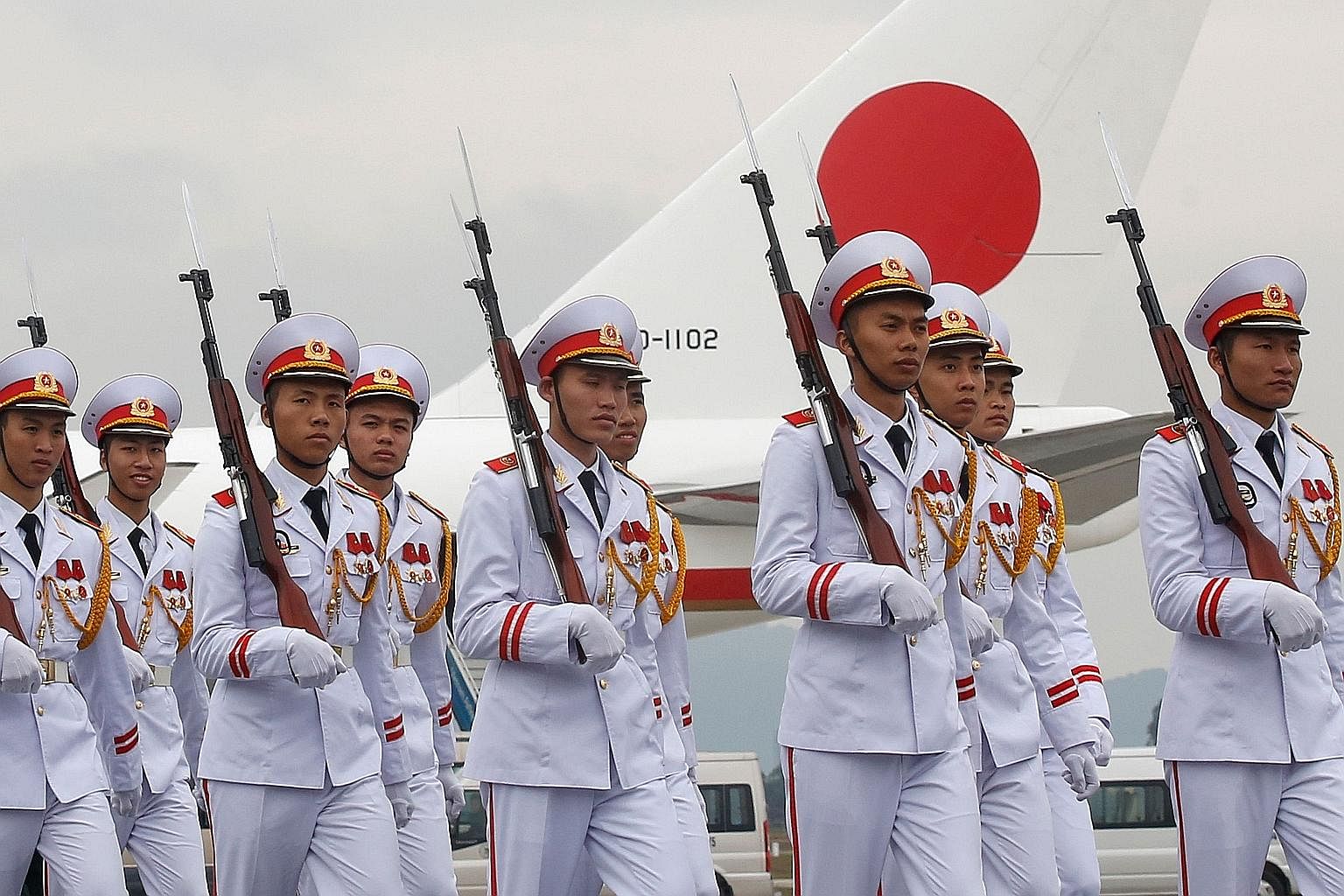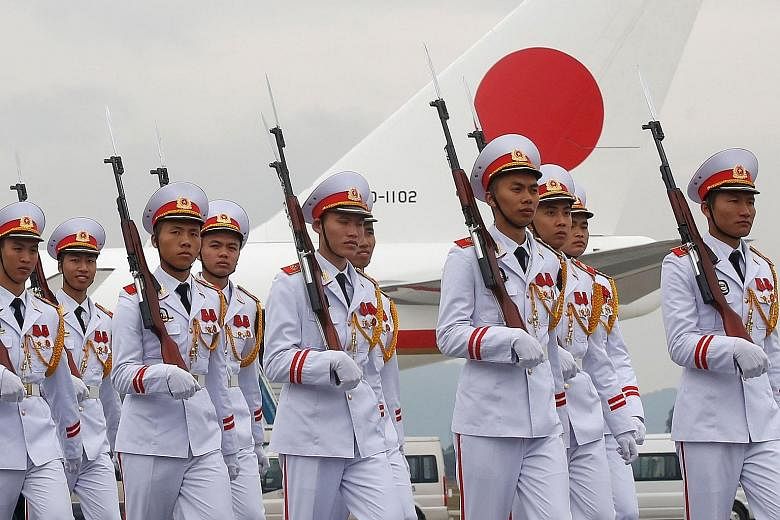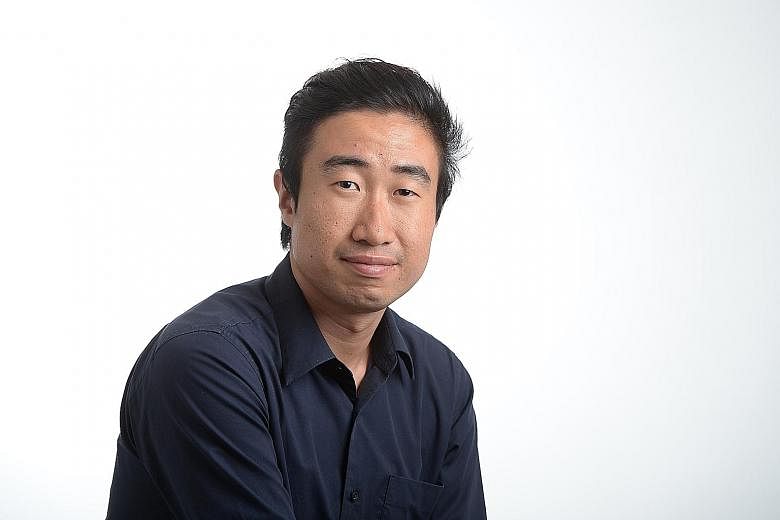Walter Sim Japanese Prime Minister Shinzo Abe has concluded his six-day tour of four countries - the Philippines, Australia, Indonesia and Vietnam - amid regional uncertainty over the Asia-Pacific policy of incoming US president Donald Trump.
Maritime security and trade were, unsurprisingly, Mr Abe's key focus as Japan sought not only to boost regional ties as tensions over the South China Sea simmer, but also to send a strategic signal to the United States that Tokyo is Washington's best partner in the region, observers said.
Sophia University political scientist Koichi Nakano said the latter was Mr Abe's "prime purpose" as Mr Trump's inauguration this Friday looms large in Tokyo's calculations.
Mr Abe, the first world leader to meet Mr Trump after his election win, told reporters in Hanoi that he wants to hold an official summit with the new US leader "as soon as possible after his inauguration". And Japanese media reports have said a meeting could occur as early as next week.
Political observers said Mr Abe's tour, which ended yesterday, came amid uncertainty over the future of the US strategic pivot to Asia championed by outgoing President Barack Obama.
The much-vaunted US-Japan alliance was a "good fit" within this rebalance, said Dr Toshihiro Nakayama from Keio University's Faculty of Policy Management.

"The Asia-Pacific is a very dynamic region, and you cannot deal with issues country by country. The US needs a regional and multilateral coordinated policy, but as of now, we see an absence of that."
His colleague, Dr Ken Jimbo, said the "healthy presence" of the US is paramount within Asia security frameworks. This is even as Japan steps up to a greater leadership role with its expanded defence powers under the Proactive Contribution to Peace legislation.
"Japan should play a role in retaining US presence in the region," he stressed. "Without this, intra-Asian cooperation becomes extremely difficult (as) the entire package assumes US presence."
On his trip, Mr Abe promised the Philippines and Vietnam patrol boats and personnel training. The two, along with Malaysia, Brunei and Taiwan, have conflicting territorial claims with China in the South China Sea.
In Jakarta, which holds the Asean leadership as the bloc turns 50 this year, Mr Abe promised President Joko Widodo continued support for Asean centrality, calling for the peaceful resolution of these territorial conflicts.
Meanwhile, ties with Australia, which cooled last year after Canberra rejected a Japanese bid for a submarines project, got a fillip as the two countries signed a revised defence pact. Mr Abe, speaking next to his Australian counterpart Malcolm Turnbull, stressed it was "more necessary than ever for Japan and Australia to play a leading role for regional peace".
Mr Abe also discussed trade, including the 12-nation Trans-Pacific Partnership treaty which Mr Trump has said he would disavow.
The Pacific Rim agreement - which analysts say is strategically crucial to the US - includes Japan, Australia and Vietnam. The three countries said they shared a desire to see its early entry into force.
On this front, Dr Heng Yee Kuang of the University of Tokyo's Graduate School of Public Policy observed that Mr Abe succeeded in "presenting Tokyo as a champion of regional trade agreements".
But the talk on the South China Sea has irked China. On Monday, Chinese Foreign Ministry spokesman Hua Chunying accused Mr Abe of "driving a wedge and playing up the regional tension" between China and Asean. She said this showed "his ulterior motives and extremely unhealthy mindset".
Dr Nakano said Japan's emphasis on the importance of the US in checking Chinese expansion in the South China Sea could backfire.
"Mr Abe probably felt it was important to act to ensure the US commitment there would not change once Mr Trump comes to power," he said. "But while it's possible Mr Trump would take a rather more hawkish attitude towards China - and although, in a way, that is precisely what Mr Abe has been asking for - there are considerable risks involved in escalating tensions."


